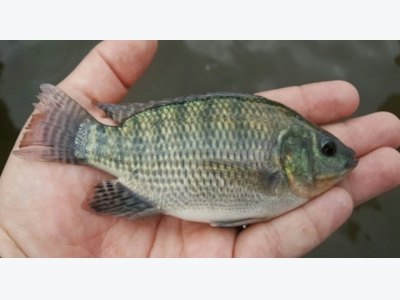Project backs sustainable African aquaculture

A new initiative that aims to promote inclusive and sustainable aquaculture in Africa as a means to achieve human development, food and nutrition security has been launched this week.
Giving farmers access to better fish stocks is seen as being essential. © Hideoyoshi Segovia
Backed by WorldFish and the CGIAR Research Program on Fish Agri-Food Systems (FISH), the Cape Town Call to Action proposes concrete actions to engender greater collaboration and evidence-based guidance that takes into account recent innovations with proven pro-poor benefits - especially in terms of nutrition, employment and income generation.
The 3-page document, which is in line with the UN’s Sustainable Development Goals (SDGs), is a result of deliberations that took place at the African Aquaculture Policy day during the World Aquaculture conference on 26–30 June. It includes proposals for regional collaboration on research and development with the establishment of centers of excellence, investments in capacity building and the dissemination of best management practices for profitable, productive, environmentally-sustainable and nutrition sensitive aquaculture.
Improvements in access to quality fish stocks, better feeds and a regional animal health strategy to coordinate disease response are seen as important elements for sustainable aquaculture.
“Recent years have seen increased growth in aquaculture but the full potential is yet to be realized,” Michael Phillips, Director of Science and Aquaculture, WorldFish and Program Director FISH, explains. “A continent-wide agreement on ways forward will help to consolidate resources, share lessons learned and allow all nations to create the incentives and infrastructure that investors need to meet growing need and demand for fish.”
Policy guidance is a key theme, with evidence-based research expected to support policy-makers to effectively undertake policy and governance reforms. The vision notes a need to make policies understandable and accessible to those farming communities to which they will apply, as well as take conservation of aquatic biodiversity into account.
Improvements in access to quality fish stocks, better feeds and a regional animal health strategy to coordinate disease response are seen as important elements for sustainable aquaculture.
The new continent-wide vision is timely for the newly launched CGIAR Research Program on Fish Agri-Food Systems (FISH), opening new opportunities for the program to align with partners to deliver quality science to underpin the sustainable growth of aquaculture in the region.
Organizations currently supporting the Call to Action are: The African Union Inter-African Bureau for Animal Resources (AU-IBAR), the East African Community Lake Victoria Fisheries Organization (EAC-LVFO), the Food and Agriculture Organisation of the United Nations (FAO), the Intergovernmental Authority on Development (IGAD), the New Partnership for Africa's Development (NEPAD), the Southern African Development Community (SADC), the World Aquaculture Society and WorldFish.
Related news
 Nofima to lead cleanerfish feed research
Nofima to lead cleanerfish feed research A new 4-year project to investigate optimization of feeds used for cleanerfish – such as wrasse and lumpsuckers – in salmon cages has kicked off in Norway.
 Top tips for cleanerfish feeding
Top tips for cleanerfish feeding Feeds and feeding techniques were amongst the key topics discussed at the International Cleaner Fish Summit in Glasgow today.
 Study raises key fish welfare issues
Study raises key fish welfare issues The preliminary results from a project which has been investigating how to use knowledge of fish welfare to improve conditions for fish used in experiments